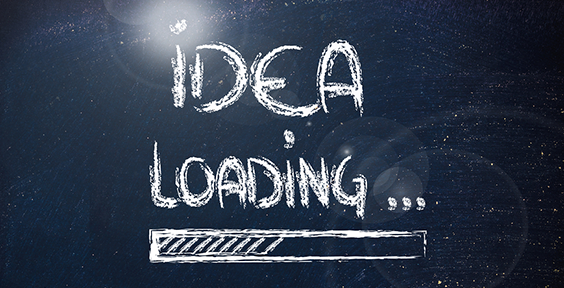 Submitted by Dr. Anya on
Submitted by Dr. Anya on

I have recently been writing a thesis paper and stopped for a while to give pause to where some of my ideas were sourced. I did some further research and found the term cryptomnesia. Cryptomnesia occurs when a forgotten memory returns without it being recognized as such by the subject, who believes it is something new and original. Even though I am including some of my own personal spiritual/ metaphysical experiences which I feel are unique in my thesis, it still made me wonder. Further research brought me to this article I would like to share:
By Maris Popova
The Psychology of Cryptomnesia: How We Unconsciously Plagiarize Existing Ideas
“Any experience the writer has ever suffered,” William Faulkner told a university audience in 1958, “is going to influence what he does, and that is not only what he’s read, but the music he’s heard, the pictures he’s seen.” This notion — that “our” ideas are the combinatorial product of all kinds of existing ideas we’ve absorbed in the course of being alive and awake to the world — is something many creators have articulated, perhaps none more succinctly than Paula Scher. This fusion of existing bits into new combinations is a largely unconscious process, and for all its miraculous machinery, one serious downside is that it often obliterates the traces of the original sources we unconsciously fold into our “new” ideas. Helen Keller experienced the repercussions of this phenomenon when she was accused of plagiarism. Henry Miller questioned it when he wrote, "And your way, is it really your way?" and Coleridge often tripped over the fine line between unconscious borrowing and deliberate theft.
In 1989, decades before legendary neurologist Oliver Sacks exploredwhy the mind is susceptible to this, psychologists Alan Brown and Dana Murphy coined a term for this phenomenon: cryptomnesia.
In the altogether illuminating 1994 volume The Psychology of Writing (public library) — which also gave us the conditions of the perfect daily routine and ideal creative environment — cognitive psychologist Ronald T. Kellogg defines cryptomnesia as “the belief that a thought is novel when in fact it is a memory” and examines how it arises.
Noting that writers frequently draw upon existing sources in a conscious way — “including verbatim quotations, expansions or summarizations, presentations of alternative points of view that differ from those of the writer, and mimicking the stylistic voice of another” — Kellogg turns to the unconscious mechanisms that drive cryptomnesia:
Much of what a writer knows, particularly discourse and sociocultural knowledge, exists only in tacit form. For example, sentence patterns as well as cultural beliefs are shared by members of the same discourse community and are drawn upon freely by all, without conscious awareness. The same sort of unconscious copying may also occur with specific sentences, facts, and arguments — forms of domain-specific knowledge. When it does, however, the author is subject to the charge of plagiarism… [Cryptomnesia] can lead to inadvertent plagiarism if a writer fails to acknowledge unwittingly an earlier source due to the failure to recognize his or her own thoughts and words as unoriginal.
In other cases, Kellogg notes, “the writer borrows unknowingly from his or her own published work” — the kind of inadvertent autoplagiarism to which today’s overly prolific writers are especially susceptible as they scramble to churn out large volumes of work with great regularity under the tyrannical industrialism of modern publishing, online and off. Indeed, the notion of cryptomnesia, in all of its permutations, seems even more uncomfortable two decades later: The expansion of the web, particularly of the social web, has resulted in far greater connectivity and faster flow of ideas between originator and recipient, followed by ever-speedier absorption of those ideas into the common pool — or what Vannevar Bush so poetically called "the common record" in 1945 — in which all of us are increasingly immersed. Under these conditions, cryptomnesia invariably becomes our collective creative pathology.
Kellogg illustrates the cognitive mechanisms of this deeply human phenomenon with empirical evidence:
In a seminal laboratory analogue of cryptomnesia, Brown and Murphy (1989) had groups of four students take turns generating examples of categories (generate). Then each student in the group tried to recall the examples that he or she generated (recall old), under instructions to not name items generated by others. Finally, they generated additional examples (recall new), again with instructions to duplicate neither their own nor others’ earlier responses. On the recall old test, 75% of the participants produced at least one plagiarized item and, on the recall-new test, 70% did so. Self-plagiarized items … were rare in the laboratory task; nearly all items were lifted from other students.
The pattern of results in the three experiments reported by Brown and Murphy indicated that plagiarism occurred more frequently in written tasks than in oral tasks. Having heard material, one is more likely to plagiarize it when writing than when speaking. Whether the reverse pattern occurs after having read material remains to be seen. But based on their results alone, writers may be especially susceptible to borrowing unknowingly ideas they have gained through lectures, discussions, and other forms of aural input… Ideas that are expressed frequently — that are “in the air” — are especially open to borrowing.
As the web increasingly becomes "the air" one can’t help but wonder — and worry — about how the growing threat of a cryptomnesia epidemic will impact the health of creative culture.
But then again, perhaps this is the fate of creativity and has always been a part of its essential nature — as Pete Seeger put it long before the social web existed and a year before Brown and Murphy’s study, "all of us, we're links in a chain. And if we do our job right, there will be many, many links to come."
/https://www.brainpickings.org/2014/09/26/cryptomnesia-psychology-of-writing/
- 1063 reads